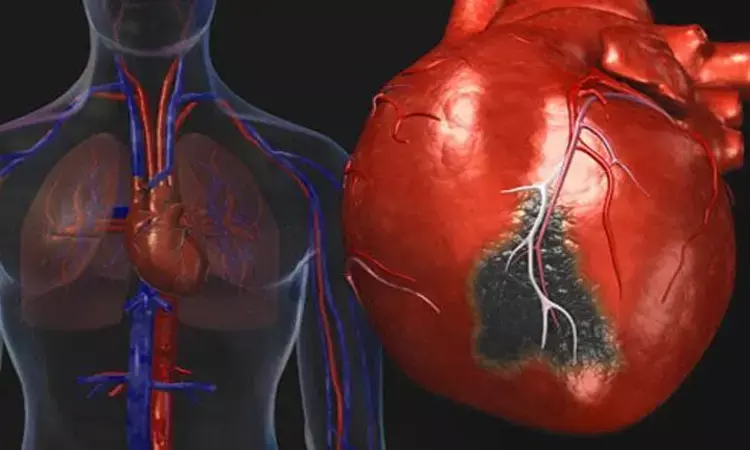- Home
- Medical news & Guidelines
- Anesthesiology
- Cardiology and CTVS
- Critical Care
- Dentistry
- Dermatology
- Diabetes and Endocrinology
- ENT
- Gastroenterology
- Medicine
- Nephrology
- Neurology
- Obstretics-Gynaecology
- Oncology
- Ophthalmology
- Orthopaedics
- Pediatrics-Neonatology
- Psychiatry
- Pulmonology
- Radiology
- Surgery
- Urology
- Laboratory Medicine
- Diet
- Nursing
- Paramedical
- Physiotherapy
- Health news
- Fact Check
- Bone Health Fact Check
- Brain Health Fact Check
- Cancer Related Fact Check
- Child Care Fact Check
- Dental and oral health fact check
- Diabetes and metabolic health fact check
- Diet and Nutrition Fact Check
- Eye and ENT Care Fact Check
- Fitness fact check
- Gut health fact check
- Heart health fact check
- Kidney health fact check
- Medical education fact check
- Men's health fact check
- Respiratory fact check
- Skin and hair care fact check
- Vaccine and Immunization fact check
- Women's health fact check
- AYUSH
- State News
- Andaman and Nicobar Islands
- Andhra Pradesh
- Arunachal Pradesh
- Assam
- Bihar
- Chandigarh
- Chattisgarh
- Dadra and Nagar Haveli
- Daman and Diu
- Delhi
- Goa
- Gujarat
- Haryana
- Himachal Pradesh
- Jammu & Kashmir
- Jharkhand
- Karnataka
- Kerala
- Ladakh
- Lakshadweep
- Madhya Pradesh
- Maharashtra
- Manipur
- Meghalaya
- Mizoram
- Nagaland
- Odisha
- Puducherry
- Punjab
- Rajasthan
- Sikkim
- Tamil Nadu
- Telangana
- Tripura
- Uttar Pradesh
- Uttrakhand
- West Bengal
- Medical Education
- Industry
CPPF after CABG reduces bleeding and related complications: Lancet

Netherlands: The continuous postoperative pericardial flushing (CPPF) therapy reduced bleeding and bleeding related complications in patients who have undergone coronary artery bypass grafting (CABG), according to a recent study. However, CPPF had comparable costs as standard care, and also there was no improvement in quality of life (QoL) with CPPF use after CABG. Considering these factors, the researchers say that the cost consideration for CPPF implementation is not relevant.
Excessive or prolonged bleeding following cardiac surgery can lead to varied secondary complications. One of the causes underlying this is incomplete wound drainage, with subsequent accumulation of blood and clots in the pericardium. Eva C Diephuis, Amsterdam University Medical Center, Amsterdam, Netherlands, and colleagues developed CPPF therapy for improving wound drainage and reduce blood loss and bleeding-related complications that occur after cardiac surgery.
The study, published in the Lancet journal EClinicalMedicine, compared CPPF to standard care in patients after bypass surgery.
The single center, open label, randomized trial enrolled 169 patients between January 15, 2014 and the March 13, 2017 at the Amsterdam UMC, location AMC, Amsterdam, the Netherlands. The enrolled participants undergoing CABG were randomly assigned to receive CPPF therapy (study group; n = 83) or standard care (control group; n = 86). Participants and investigators were no masked to group assignment. The primary end point was postoperative blood loss in the first 12-hours after surgery.
Key findings of the study include:
- CPPF reduced postoperative blood loss when compared to standard care (median differences -385 ml, reduction 76%), with the remark that these results are overestimated due to a measurement error in part of the study group.
- None of patients in the study group required reoperation for non-surgical bleeding versus 3 (4% to 7.0%) in the control group.
- None of the patients in the study group suffered from cardiac tamponade, versus 3 (4% to 7.0%) in the control group.
- The incremental cost-effectiveness ratio was €116.513 (95% bootstrap CI €-882.068 to €+897.278).
"The use of CPPF therapy after CABG reduced seems to reduce bleeding and bleeding related complications. With comparable costs and no improvement in QoL, cost consideration for CPPF implementation is not relevant," wrote the authors.
"None of the patients in the study group required re-interventions for non-surgical bleeding or acute cardiac tamponade, which underlines the proof of concept of this novel therapy," they concluded.
The study titled, "Continuous postoperative pericardial flushing reduces postoperative bleeding after coronary artery bypass grafting: A randomized trial," is published in the journal EClinicalMedicine.
DOI: https://www.thelancet.com/journals/eclinm/article/PIIS2589-5370(20)30405-3/fulltext
Dr Kamal Kant Kohli-MBBS, DTCD- a chest specialist with more than 30 years of practice and a flair for writing clinical articles, Dr Kamal Kant Kohli joined Medical Dialogues as a Chief Editor of Medical News. Besides writing articles, as an editor, he proofreads and verifies all the medical content published on Medical Dialogues including those coming from journals, studies,medical conferences,guidelines etc. Email: drkohli@medicaldialogues.in. Contact no. 011-43720751


